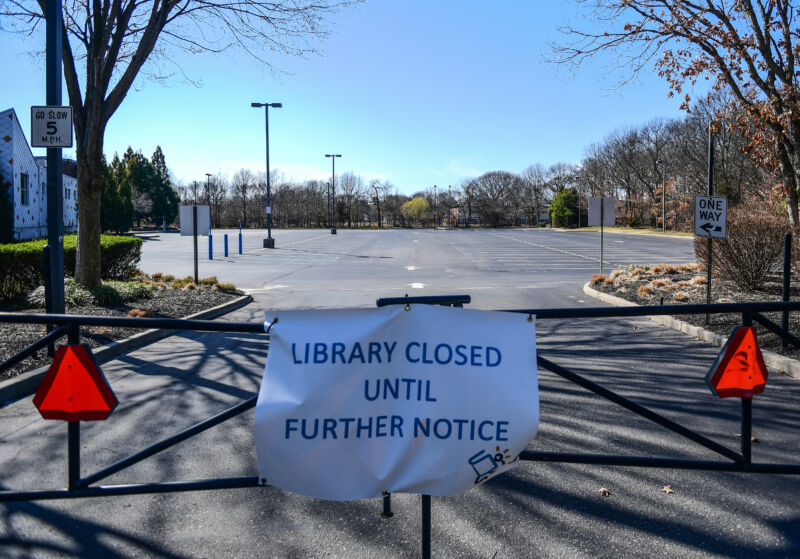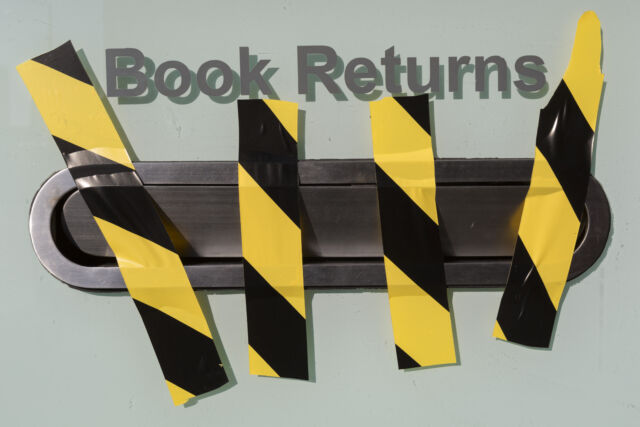Authors fume as online library “lends” unlimited free books

For almost a decade, the Internet Archive, an online library best known for its Internet Wayback Machine, has let users “borrow” scanned digital copies of books held in its warehouse. Until recently, users could only check out as many copies as the organization had physical copies. But last week, The Internet Archive announced it was eliminating that restriction, allowing an unlimited number of users to check out a book simultaneously. The Internet Archive calls this the National Emergency Library.
Initial media coverage of the service was strongly positive. The New Yorker declared it a “gift to readers everywhere.” But as word of the new service spread, it triggered a backlash from authors and publishers.
“As a reminder, there is no author bailout, booksellers bailout, or publisher bailout,” author Alexander Chee tweeted on Friday. “The Internet Archive’s ‘emergency’ copyrights grab endangers many already in terrible danger.”
“It is a tarted-up piracy site,” wrote author James Gleick.
The Authors Guild, a leading authors’ organization, wrote Friday that it was “appalled” by the Internet Archive’s move. “We are shocked that the Internet Archive would use the COVID-19 epidemic as an excuse to push copyright law further out to the edges, and in doing so, harm authors, many of whom are already struggling,” the group wrote.
The Association of American Publishers also blasted the project last Friday. “We are stunned by the Internet Archive’s aggressive, unlawful, and opportunistic attack on the rights of authors and publishers in the midst of the novel coronavirus pandemic,” wrote the group, which represents dozens of publishers, including most of the largest ones in the United States.
The Internet Archive responds

In a Monday blog post, the director of the emergency library project, Chris Freeland, wrote that the emergency library concept was inspired by the closure of libraries across the United States and around the world.
“Right now, today, there are 650 million books that tax-paying citizens [in the US] have paid to access that are sitting on shelves in closed libraries, inaccessible to them,” Freeland wrote. “To meet this unprecedented need at a scale never before seen, we suspended waitlists on our lending collection.”
The post includes a section addressing common questions about the emergency library. One question addressed in the post is “What is the legal basis for Internet Archive’s digital lending during normal times?” Freeland touts the practice of controlled digital lending, which he argues is legal under copyright’s fair use doctrine—though no court has ruled on the question so far.
But the post doesn’t directly address the legality of the library’s latest incarnation, which offers unlimited copies of in-copyright books. Freeland notes that users are limited to reading a book for two weeks (though they can renew it). And he notes that the courts have ruled that it’s legal for libraries to scan books. But he doesn’t explain how the service’s current incarnation complies with copyright law.
When I asked Cornell copyright scholar James Grimmelmann about the legality of the program last week, he seemed skeptical.
“There is no specific pandemic exception” under copyright law, he said. Copyright’s fair use exception is open-ended, so theoretically a judge could decide that the emergency circumstances of a pandemic justify the Internet Archive’s action. But there are few examples of courts making such a big leap. At a minimum, the Internet Archive is taking a substantial legal risk.
The question is whether anyone will actually file a lawsuit. Authors and publishers would likely have a strong case. But lawsuits are expensive, and suing an online library distributing books in the middle of a pandemic could be a public relations nightmare.
https://arstechnica.com/?p=1664596